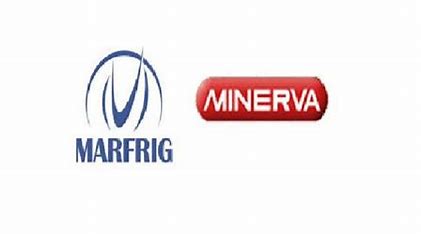Antitrust watchdog CADE says acquisition of assets is not simple, requires more time for analysis
02/01/2024

The approval—or not—of the acquisition of Marfrig’s beef assets by Minerva Foods should take longer than the companies had previously expected. The companies submitted the deal to the Administrative Council for Economic Defense (CADE) on September 27, 2023, when an obstacle to approval was the incomplete composition of the tribunal. But even after the appointment and installation of four new members, the antitrust regulator’s General Superintendence (SG) considered the operation was not simple and, therefore, required more time study it.
The deal includes the acquisition of part of Marfrig Global Foods and Marfrig Chile’s beef and sheep business, encompassing slaughtering and deboning plants, plus a distribution center. The assets are located in Brazil, Argentina, and Chile.
The deal doesn’t mean Marfrig’s exit from the animal slaughtering segment, as the company will maintain other plants. Both companies told CADE that, for Marfrig, the deal is in line with the strategy of focusing on the production of branded meat and high value-added products. As for Minerva, the acquisition is “a strategic opportunity to complement its operations,” with a focus on savings through scale and efficiency gains.
When the companies announced the R$7.5 billion deal to the antitrust watchdog, they described it as a summarized concentration act, a format intended for operations that are considered to be simple, whose deadline in this case is 30 days. As the General Superintendence turned it into an ordinary act, the process can take up to 240 days. In addition, the new deadline considers January 22nd as the starting date, when the General Superintendence asked the companies for new information regarding the operation.
The 240-day period is set out in the legislation. When contacted, CADE explained that the General Superintendence usually works within a 90-day deadline, a shorter period it tries to meet. Still, it is much longer than what Minerva and Marfrig expected when they submitted the deal.
In an order released in December, the General Superintendence said, given that in at least one of the markets involved in the operation (cattle slaughter in Rondônia), the deal could give Minerva a dominant position (with a market share exceeding 20%), it’s not possible to classify it as a summarized procedure.
Additional evidence was also requested. Only after that will the superintendence release an opinion on the case.
Based on the decision, if the deal is approved without restrictions, there will be a 15-day period for third parties or members to question the opinion and then move the deal to CADE’s tribunal. If the superintendence rejects or approves it with restrictions, the case will necessarily be submitted to the tribunal. If the superintendence approves it and there are no manifestations within 15 days, the deal will receive final approval.
The Brazilian Agriculture Confederation (CNA) requested to participate as a third party interested in the process. The entity says it intends to ensure that ranchers established in the areas of meatpacking plants will not be harmed from market power in the future.
CNA said it sent the antitrust watchdog a technical note in which describing the impacts of market concentration in recent years in the sector. According to CNA, the acquisition of Marfrig’s meatpacking operations by Minerva could increase market concentration in some states.
Last week, more than 100 letters were sent by CADE to members of markets that could be affected by the deal. The markets in question involve the sale of fresh beef and lamb in the domestic market; cattle slaughter and its by-products in the domestic market, rawhide in the domestic market; and beef processing activities.
Marfrig and Minerva declined to comment.
*Por Beatriz Olivon — Brasília
Source: Valor International
